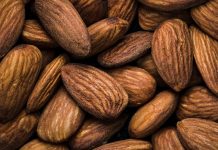
Scientists from the University of Rochester have conducted a study highlighting the potential health risks associated with consuming excessive amounts of black licorice.
Licorice root contains glycyrrhizin, a compound that can cause side effects when consumed in large quantities.
Recent research suggests that glycyrrhizin can mimic the hormone aldosterone, leading to high blood pressure and disturbances in heart rhythm.
This case study focuses on a woman who experienced health issues due to excessive licorice intake.
Understanding Licorice and its Effects
Licorice is an herb found in parts of Europe and Asia. Licorice root contains glycyrrhizin, which can have adverse effects on the body when consumed in large amounts.
Glycyrrhizin mimics aldosterone, a hormone produced by the adrenal glands that regulates sodium retention and potassium excretion.
Excess glycyrrhizin can elevate blood pressure and disrupt heart rhythm. Additional symptoms of excessive licorice intake may include swelling, muscle pain, numbness, and headaches.
The Case Study
A 50-year-old woman sought medical attention after experiencing muscle aches and dark urine for four days. The patient was taking a water pill (diuretic) to increase urine flow and reduce excess water in the body.
During examination, the patient revealed consuming one and a half bags of black licorice bites containing 2% natural licorice over the past three weeks.
Medical tests indicated high blood pressure, elevated muscle injury markers, and low levels of potassium, calcium, and phosphorous in the body.
Impacts on Health
Potassium is essential for proper nerve and muscle cell functioning, particularly in the heart muscles.
Calcium plays a vital role in electrical signal conduction within the body, while phosphorous contributes to various bodily functions.
Low levels of these minerals can result in muscle weakness, respiratory or heart failure, seizures, or comas.
Glycyrrhizic Acid and Cortisol
The researchers discovered that glycyrrhizic acid, the active component of licorice, inhibits an enzyme responsible for converting cortisol (a steroid hormone) into its less active form, cortisone.
This can lead to an excess of cortisol, mimicking a condition known as syndrome of apparent mineralocorticoid excess (AME).
AME is characterized by high blood pressure, low potassium, low calcium, and low phosphorous levels.
Complications and Recommendations
In the patient described in the case study, excessive licorice intake resulted in low potassium levels, leading to a life-threatening condition called rhabdomyolysis, which involves the breakdown of skeletal muscle fibers.
Researchers suggest that licorice may have contributed to low phosphorous levels, exacerbating the patient’s health complications.
They caution against excessive consumption of black licorice and emphasize the importance of moderation.
Conclusion
The study highlights the potential health risks associated with excessive consumption of black licorice.
The active component, glycyrrhizic acid, can lead to high blood pressure, disturbances in mineral levels, and serious complications.
It is crucial for individuals to be mindful of their licorice intake and avoid excessive consumption. Understanding these risks can help individuals make informed choices about their dietary habits.
The research, conducted by Megha Shah et al., was published in the journal Clinical Nephrology.
Copyright © 2023 Scientific Diet. All rights reserved.








